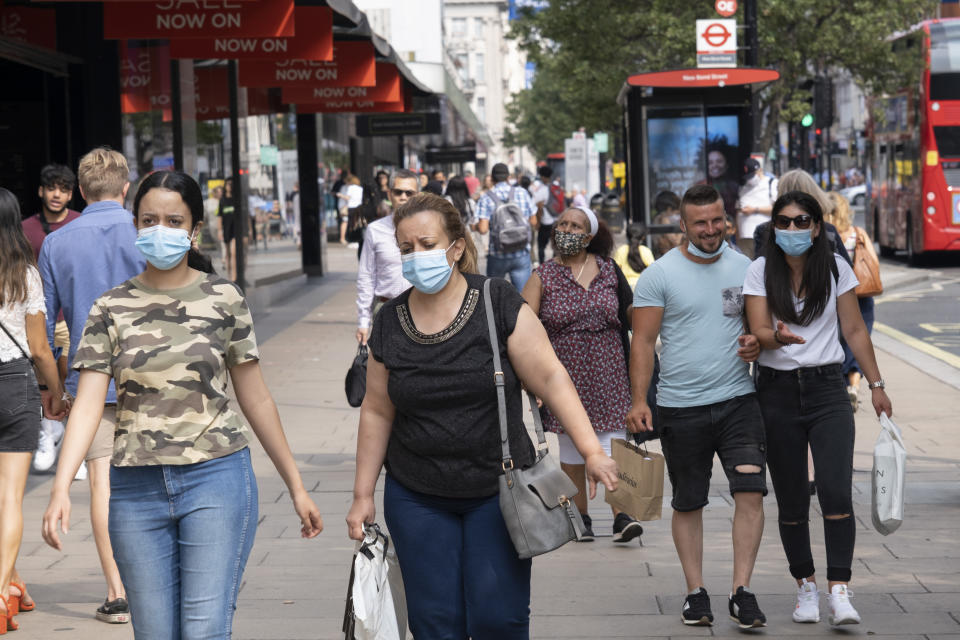Coronavirus cases top 2,500 again as new 'rule of six' laws brought in

The number of people in the UK who have tested positive for coronavirus has increased by another 2,621, official figures have revealed.
The tally is slightly lower than Sunday's 3,330 cases, and brings the country’s total to 371,125.
There were a total of nine deaths recorded on Monday, up from five on Sunday, bringing the official number of lives lost to 41,637.
Separate figures published by the UK’s statistics agencies show there have now been 57,400 deaths registered in the UK where COVID-19 was mentioned on the death certificate.
Cases have been gradually increasing since the start of the month as the virus spreads more noticeably, with the number of new infections now regularly topping 2,000 – comparable with the levels seen towards the end of May.
At the peak of the pandemic in March, there were upwards of 5,000 cases each day – though it is now widely believed that a lot of infections went undetected at the time due to far fewer people being tested for the virus.
In order to counter the spread of the disease, the government introduced the new ‘rule of six’ – which came into effect on Monday – making it illegal for people to meet in groups of more than six people.
These new rules allow the police to be able to disperse groups of more than six people and fine individuals up to £3,200 for repeat offences.
The government has warned this has been partially driven by a rise of infections in young people.
Policing minister Kit Malthouse on Monday said people could report neighbours to the police to ensure people followed the new guidelines.
In an interview with BBC Radio 4, he said: “We are in discussions about what reporting mechanisms there might be, but there is obviously the non-emergency number that people can ring and report issues they wish to.”
However, in a statement likely to weaken the impact of the government’s new legislation, the prime minister’s official spokesman said police were unlikely to enforce fines over the coming days at least.
He said: “What we want people to be focused on is following the new rules and ensuring that they, themselves, help again as they have in the past to slow the spread of the virus.
“What you have seen in recent weeks is some egregious flouting of the rules, such as the holding of large illegal parties, and members of the public have been contacting the police about those because they have been concerned about the risk to public health.”
In one particularly serious incident on Friday, a 19-year-old man was fined £10,000 for hosting a party with dozens of guests at his home, breaking the COVID-19 government guidelines.
On Sunday, the World Health Organization announced a further 307,930 new coronavirus cases, a record increase since the outbreak began.
The countries driving this sharp increase are India, the US and Brazil.
Coronavirus: what happened today
Click here to sign up to the latest news and information with our daily Catch-up newsletter

 Yahoo Sports
Yahoo Sports 
